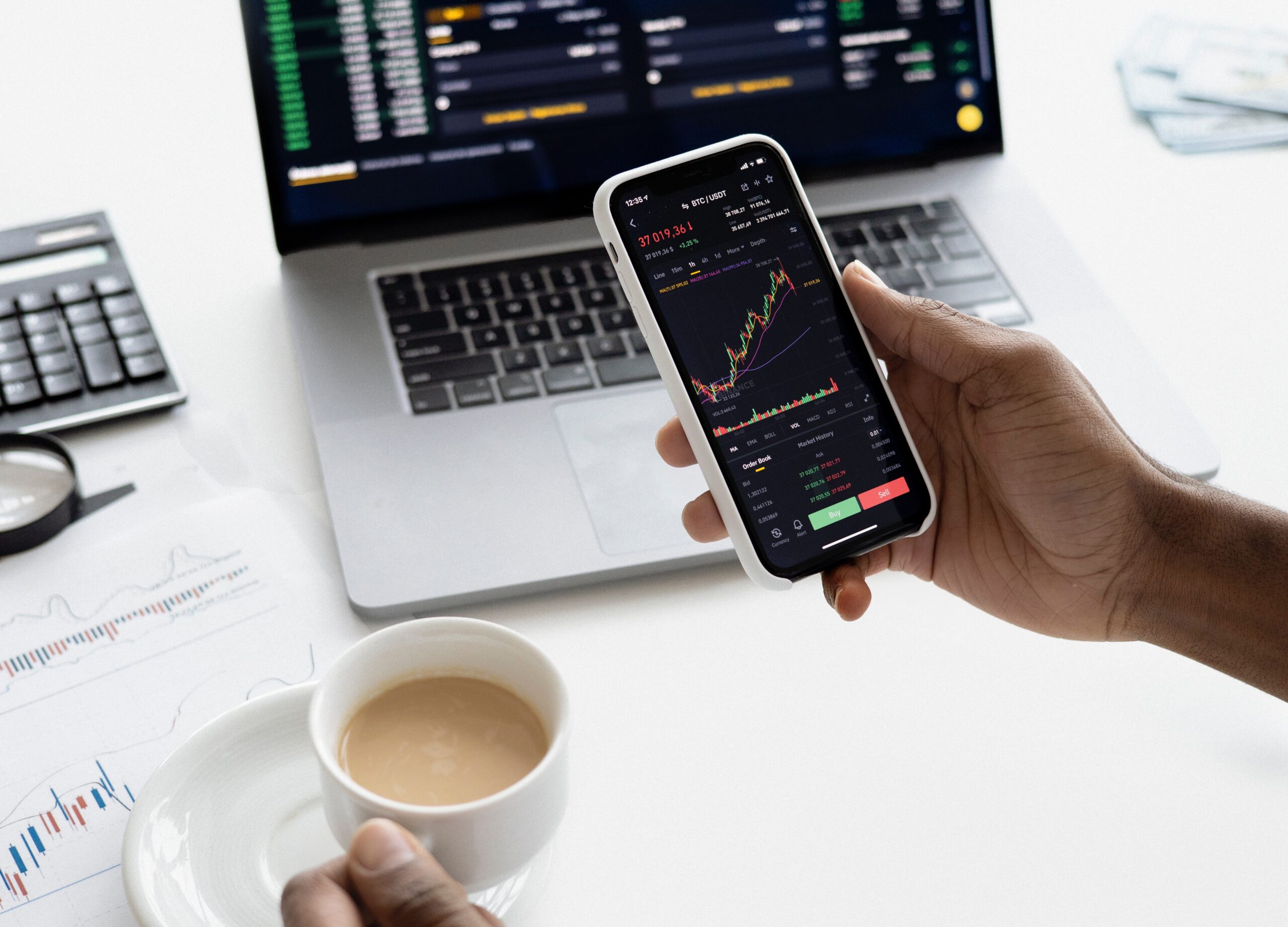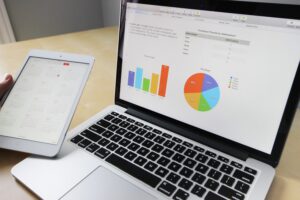Table of Contents
ToggleWhat is the Foreign Exchange Market?
The foreign exchange market is the global market for currencies that offers traders a central location to trade currencies from different countries. It is also known as the forex market or FX market. The forex market is the largest financial market in the world with trading volumes that average more than $5 trillion daily.
The forex market gives traders the opportunity to trade or speculate on the exchange rate between two currencies and buy and sell currencies from different countries. It is open 24 hours, five days a week. Any foreign exchange trader can access the platform with an internet connection.
Foreign exchange traders profit when the market price between foreign currencies increases between the currency bought and sold. Forex trading carries risks; however, there is potential to make significant financial gains as well.
How does Foreign Exchange Work?
A simple example of forex trading is an international currency exchange. When traveling internationally, people convert one currency to another. As a result, different transactions may have different rates. Additionally, the exchange rate used for foreign cash, drafts, checks, or wire transfers may vary. Transactions are calculated based on the current market value of each country’s currencies which is rarely a 1:1 ratio.
The foreign exchange market determines the relative values of different currencies. Traders, banks, investors, and governments buy and sell different currencies in the foreign exchange market. For example, if a trader wants to buy the U.S. dollar, they would have to sell a base currency, such as the British pound, to get the U.S. dollar, identified as the ‘counter’ currency. The rate at which currencies are exchanged is determined by factors such as political stability, economic strength, and supply and demand.
Major trading centers are in London, New York, Tokyo, and Hong Kong. The market is constantly changing, and traders must stay up-to-date on the latest market conditions and news to make profitable trades.
Forex Market vs. Other Markets
The main difference between the Forex market and other markets is the days and times available to trade foreign currency cash. Other markets, such as stock and commodity markets, have set trading hours and days and are generally open only during business hours. Another difference between the Forex market and other markets is that FX offers much higher liquidity than other markets. This option makes it easier to trade and allows investors to trade larger positions with less capital. Another factor that differentiates FX markets is the use of leverage in trading. Leverage enables traders to trade larger sums based on borrowed capital. This leverage amplifies their earnings or losses.
How Big Is the Forex Market?
The forex market is the world’s largest and most liquid financial market, with a daily trading volume of over $5.1 trillion. This is more than three times the total amount of the stocks and futures markets combined.
Trading in the Foreign Exchange Market
Before starting to trade foreign exchange, it’s best to do your research. First, you’ll need to spend time researching the market. That means understanding the basics of forex trading and the factors influencing currency prices. Spend time researching and learning about the different currencies, their markets, and the factors affecting their value.
Next, find a regulated broker with a good track record. Choose someone who understands your investment goals and works with a currency exchange that provides the best trading conditions for your needs. You’ll need to compare the initial deposit each broker requires. Depending on your investment goals and start-up funding, this may eliminate some options. As part of your research, you’ll want to make sure you are in step with fees and regulations. For fees – you’ll want to be familiar with the spreads they offer and the transaction costs. Of course, trading in financial instruments has a huge regulatory component. You’ll want to ensure your broker meets the regulatory standards in your geography. Finally, your broker will help you open and fund your account.
With your open account, you can now start placing trades. Most brokers will offer a range of options that allow you to trade directly from their trading platform.
A broker can be helpful. However, it’s your responsibility to follow and monitor your trades so you can make necessary changes.
Types of Forex Transactions
1. Spot Transactions: Spot transactions represent direct exchanges between two currencies, involve actual currency rather than a contract, have the shortest time frame, and don’t include any interest.
2. Forward Trading: A forward trade is a foreign currency trade where one party buys a currency from another party, but the deal isn’t finalized until some time later. For example, if you want to buy $100 worth of Euros today, but don’t know whether they will sell them to you tomorrow, then you’d enter into a forward contract.
3. Futures Transactions: A futures transaction is an agreement to buy or sell a set amount of a currency at a predetermined price and a specified time in the future. This type of transaction is used primarily by currency speculators and hedgers who want to take advantage of price movements in the currency market.
4. Swaps: A swap is an exchange of two currencies for a certain amount of time at a predetermined exchange rate. Businesses use swaps as a form of hedging, as well as by currency speculators.
Pros and Cons of Trading Forex
The pros of forex trading are that this option has high liquidity and low costs. Additionally, with a 24-hour market, forex traders have a ton of flexibility.
Key Reasons To Trade Forex:
1. High liquidity: Forex trading has the highest liquidity of any financial market. This means that traders can enter and exit trades quickly and easily with minimal slippage.
2. Low costs: Forex trading has very low transaction costs compared to other markets.
3. Leverage: Forex trading offers high leverage, which allows traders to control large amounts of capital with a relatively small deposit.
4. 24-hour market: The Forex market is open 24 hours a day, five days a week, allowing traders to capitalize on market movements at any time.
As many pros as foreign exchange trading offers, there are cons investors need to consider.
Key Concerns to Trading Forex:
1. Market volatility: The high volatility of the Forex market makes it difficult to predict price movements.
2. Leverage: While leverage can be a great tool for investors looking to break into trading, it can also significantly amplify losses with the wrong trades.
3. Regulation: The Forex market has many unregulated bodies. Without a central authority to monitor trades, there are risks of unethical practices.
4. Lack of education: Many traders lack the knowledge to become profitable in currency trading.
FAQ:
Can you make money trading forex?
Yes, you can make money trading forex. However, you need to remember that all trading risk. Forex trading is not suitable for all investors. As with any type of investment, it is important to understand the risks and do your research before diving into investing.
How does Forex trading work?
Forex trading involves purchasing and reselling of currencies on the foreign currency markets. Traditionally, people who leverage forex for trading believe that one currency will rise against another. They may purchase a currency in advance of its expected rise, or they may sell a currency before its anticipated fall. In either case, profits depend on the currency positions shifting in price compared to the other currency.
Is Forex good for beginners?
Forex can be a great way for beginners to get started in trading, but it is important to be aware that trading in the foreign exchange market is highly speculative and carries a high level of risk. New traders should take the time to research the market, understand its complexities, and develop a trading strategy that fits their own risk tolerance and goals.
How do forex traders make money?
Forex traders make a profit buying currency when they predict the exchange rate will rise, and then selling after the rate drops. Additionally, traders may use tactics such as hedging, leveraging, and technical analysis to increase the odds of success in forex trading.




